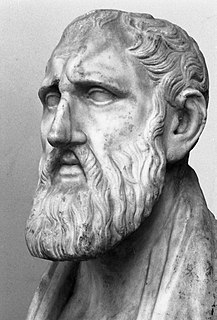A Quote by Monica Johnson
Whether you like it or not, when you claim to be a Christian, the world takes note.
Related Quotes
In the descent from a world of factual discourse into a world of emotions and alternative realities, the first step you take, whether you're the Russian media, whether you're Breitbart, is that you manufacture lots of stuff that isn't true. The second step is that you claim that everyone is like this.
Making your mark on the world is hard. If it were easy, everybody would do it. But it's not. It takes patience, it takes commitment, and it comes with plenty of failure along the way. The real test is not whether you avoid this failure, because you won't. it's whether you let it harden or shame you into inaction, or whether you learn from it; whether you choose to persevere.
The Christian claim is: Nothing explains the facts better than an all-powerful, all-knowing, omnipresent god creating the universe and sending Jesus to spread his message. This is about as remarkable a claim as could be stated, and yet it is tossed out lightly. Christians seem to imagine that "God did it" is as plausible as the natural explanation that stories grow with the retelling. The Christian has the burden of proof, and it's an enormous burden given this enormous claim.
If I ask you who is the most famous scientist who ever lived, or the greatest scientist who ever lived you'll say either Einstein or Newton or something like that because their claims were supposed to apply universally. But the claim of somebody who is studying a particular feature of the evolutionary process like whether it's very fast or very slow, or occurs in steps and so on, that's not a universal claim, that's a rather specialised claim and so you can't claim to great fame and great success.
There is no ground whatever for the claim, so often made by religious apologists, that these ideals are specifically Christian and originated with Jesus. What were specifically Christian were some of the less enlightened teachings, which have done untold harm. Christians claim that organised Christianity has been a great force for good, but this view can be maintained on one assumption only: that everything good in the Christian era is a result of Christianity and everything bad happened in spite of it.
Contemporary Christian proclamation is faced with the question whether, when it demands faith from men and women, it expects them to acknowledge this mythical world picture from the past. If this is impossible, it has to face the question whether the New Testament proclamation has a truth that is independent of the mythical world picture, in which case it would be the task of theology to demythologize the Christian proclamation.
For the Deist ... prayer is calling across a void to a distant deity. This lofty figure may or may not be listening. He, or it, may or may not be inclined, or even able, to do very much about us and our world, even if he (or it) wanted to ... all you can do is send off a message, like a marooned sailor scribbling a note and putting it in a bottle, on the off-chance that someone out there might pick it up. That kind of prayer takes a good deal of faith and hope. But it isn't Christian prayer.
If the Christian church is to move responsibly towards the future, it must restore or renew its ties with its past. Contemporary Catholic and Protestant radicals want to claim that Christianity means whatever Christian today happen to believe and practice, be it pantheism, unitarianism, or sodomy. The Christian faith has suffered immeasurable harm because of the tendency of people to use the word Christian in a careless and non-historical way. Nothing in this argument would preclude liberal Protestants and Catholics from developing and practicing any religion they like.




































